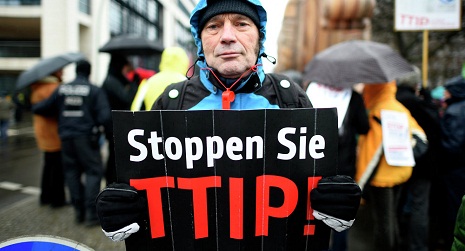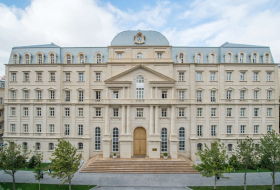Covering half the globe, it will attempt to harmonize trade regulations and scrap tariffs from California to Bosnia.
The participants in the rallies in London, Berlin, Madrid, Frankfurt and Zurich worry, however, that TTIP’s regulatory cooperation agenda could undermine the ‘precautionary principle’ that is central to protecting the environment and public health in Europe by granting US companies wider access to European markets.
Britain’s Conservative-led government, which has long been resolute in its support of TTIP, is more optimistic though, arguing that the TTIP deal would boost the national economy by an estimated $15 billion.
The US economy would gain around $120 billion and the EU economy as a whole would expand by an additional $100 billion.
Many experts warn, however, that the inaction of TTIP would ruin the country’s free health care system, one of the best in Europe, supplanting it by an American model of insurance-based health care only financially affluent people can afford.
According to a recent YouGov survey 54 percent of Britons vote against TTIP. Some of the British trade unions are also against it.
A coalition of 375 civil society organizations from across Europe, including War on Want, Greenpeace and trade unions UNISON and GMB, have published a joint letter to all MEPs calling on them to reject any EU-US trade treaty that does not serve the public interest.
The preliminary text of the TTIP agreement is slated to be ready by December 2015.
Meanwhile, a number of countries, mainly in Latin America, are planning to opt out of similar trade deals with the US. Some countries, including South Africa, are already pulling out.
More about:
















































